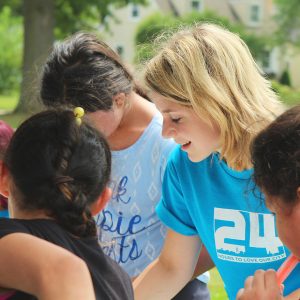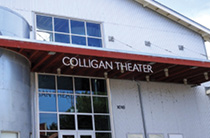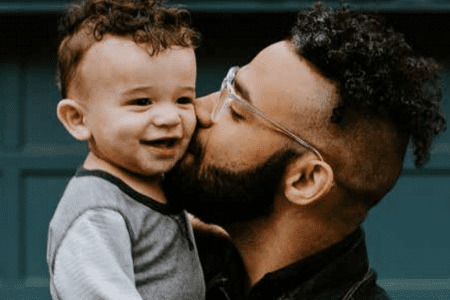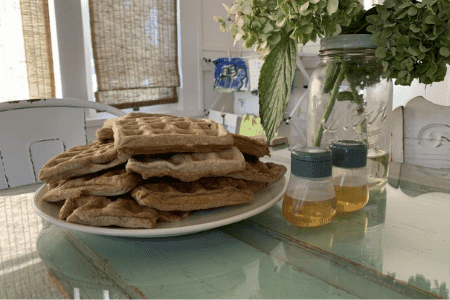Nonprofits Struggling as Virus Spreads
BY SUKI WESSLING
 This interview took place on March 14, when we had very little sense of where our county, our country, and the world would be by April. I wanted to find out what was happening with local nonprofits that work with kids. Through the confusion of the first days of quarantine, Kate and Angela took the time to express the state of volunteerism in Santa Cruz and their hopes for how we might rise out of this mess in the end.
This interview took place on March 14, when we had very little sense of where our county, our country, and the world would be by April. I wanted to find out what was happening with local nonprofits that work with kids. Through the confusion of the first days of quarantine, Kate and Angela took the time to express the state of volunteerism in Santa Cruz and their hopes for how we might rise out of this mess in the end.
KP: Hi, this is Kate Pavao, Executive Director of the Live Like Coco Foundation. Our mission is to help kids in Santa Cruz County grow up healthy and with opportunities to pursue their dreams.
AF: Hi, this is Angela Farley from Teen Kitchen Project. We engage young people in the preparation of meals that are delivered to people in crisis due to illness in Santa Cruz County.
Growing Up: Even though very few people are currently diagnosed in Santa Cruz, we’re being advised to practice social distancing. How has this affected your current operations?
AF: If my team gets sick they can’t cook. We’ve had to remove the in-kitchen volunteers, but that puts more on my team because they have to work a little bit longer to do all the jobs that were previously done by volunteers. If any one of us gets sick, we have to shut down operations. We’re trying to prolong the time before that happens.
KP: Our big spring fundraiser is a fun run that we do. It’s always in April and it’s looking like we’re going to cancel. We’re so tied in with PVUSD (Pajaro Valley Unified School District). Our foundation was paying for buses to bring kids into our fun run from several different PVUSD schools. The other big project we’re working on is bringing kids on field trips to Nisene Marks. It’s like a year’s worth of volunteer work is going down the drain right now.
Growing Up: So it seems like there are two sides to this: there is all the good work that nonprofits do in our community, which right now they’re having to pause or cancel, and then there’s all the support that the community gives to the nonprofits. How are we going to get through this?
AF: Last week we lost $10,000 in catering income from UCSC, just like that. We were getting ready for a capital campaign for our Aptos kitchen which would be our hub. But we canceled our donor brunch and that’s probably at least $50 to $100,000 in total loss.
KP: We always involve the people that we serve in our fundraising. So the kids are not only helping with fundraising but also having this amazing day, connecting with other kids, making free smoothies, getting their face painted. Our spring fun run is one of the two biggest fundraisers of the year. We’ll see if businesses will be in the position to donate to the auction this fall to make up for our losses.
SW: Neither of your organizations has given up. What are you doing in the meantime?
KP: We’ve been able to regroup a bit. Our mission is to help support kids and families in this community and we’re not able to do what we’d planned. So we started working with the County Park Friends for Virtual Park Story Hour. Not only to promote books and getting outside, which are two of the biggest values of our foundation, but also to provide community connection.
AF: Something I ask myself a lot is, ‘How do we make the world the kind of place where Teen Kitchen Project isn’t needed anymore?’ It seems like something as scary as a virus can help you realize how important it would be to be aware of who your neighbors are, who might need food, who might need your help. The illness is making us more aware that we’re all in it together. It doesn’t take that much to cook an extra meal for someone and bring it to them and I hope there are enough eyes in our neighborhoods that somebody would notice who needs help.
Growing Up: What do you hope we might learn from this?
KP: It’s going to be interesting to see what’s going to happen here as far as fitness is concerned. It’s great that people are out walking and saying hello to each other.
AF: If we were to snap and go three weeks ahead and there’s no more quarantine, I think of people coming into this reality that we need each other. Hopefully this will have a lasting impact on how we judge each other. I think it’s helping to build a more connected community in the long run, but right now it’s pretty scary.
KP: Nonprofits are going to have to remind people to not only keep supporting the people they support. We should be highlighting the businesses that support us, too, so people don’t forget local business is how we keep our programs running. We need to make sure people remember how the ecosystem works as we keep telling our stories.
We have no idea what will be happening in a few weeks when you open up GUiSC and read this conversation. We hope that you are safe and healthy, and are starting to look around for ways you can help rebuild our community by supporting local business and local nonprofits that help the most vulnerable members of our community.







